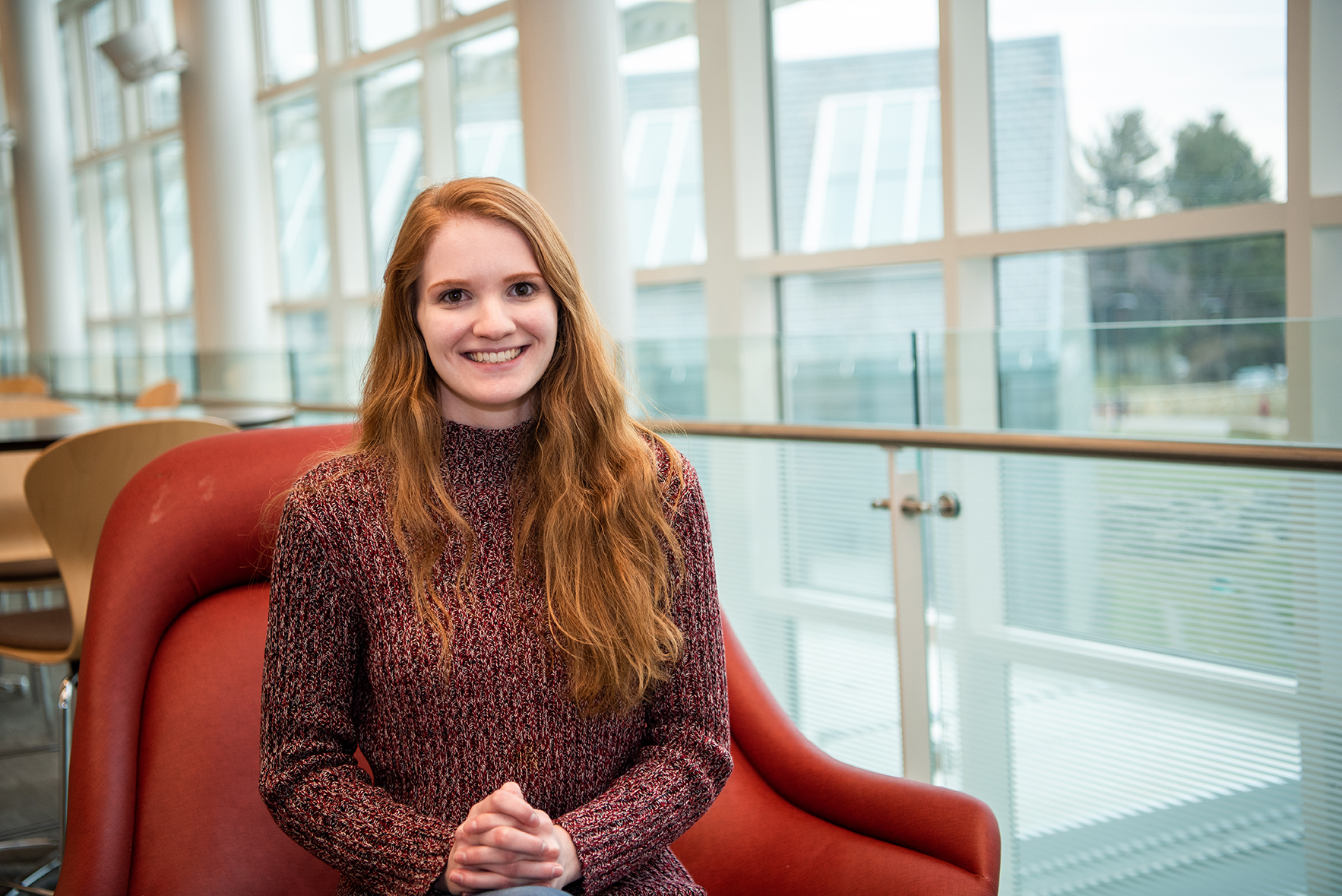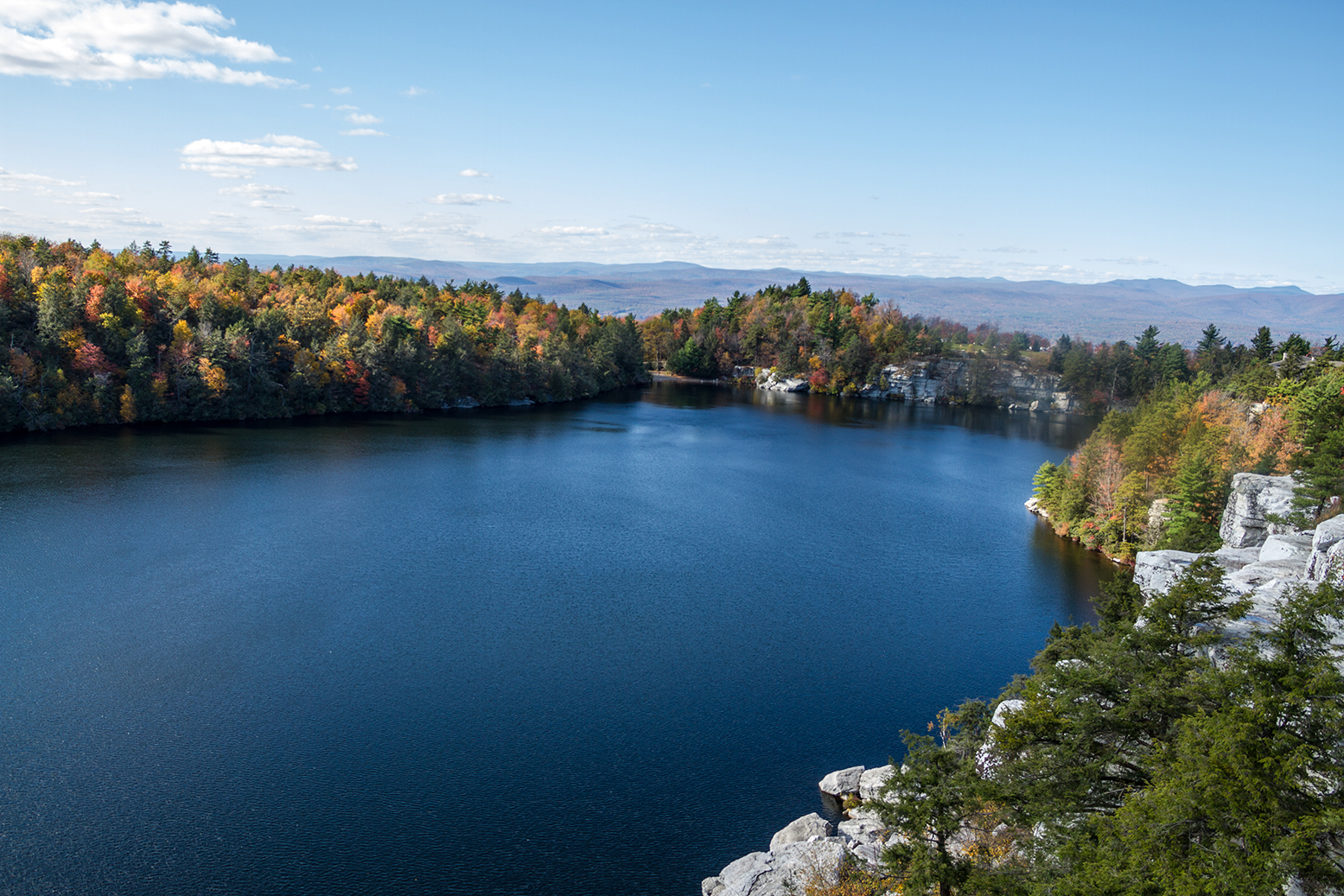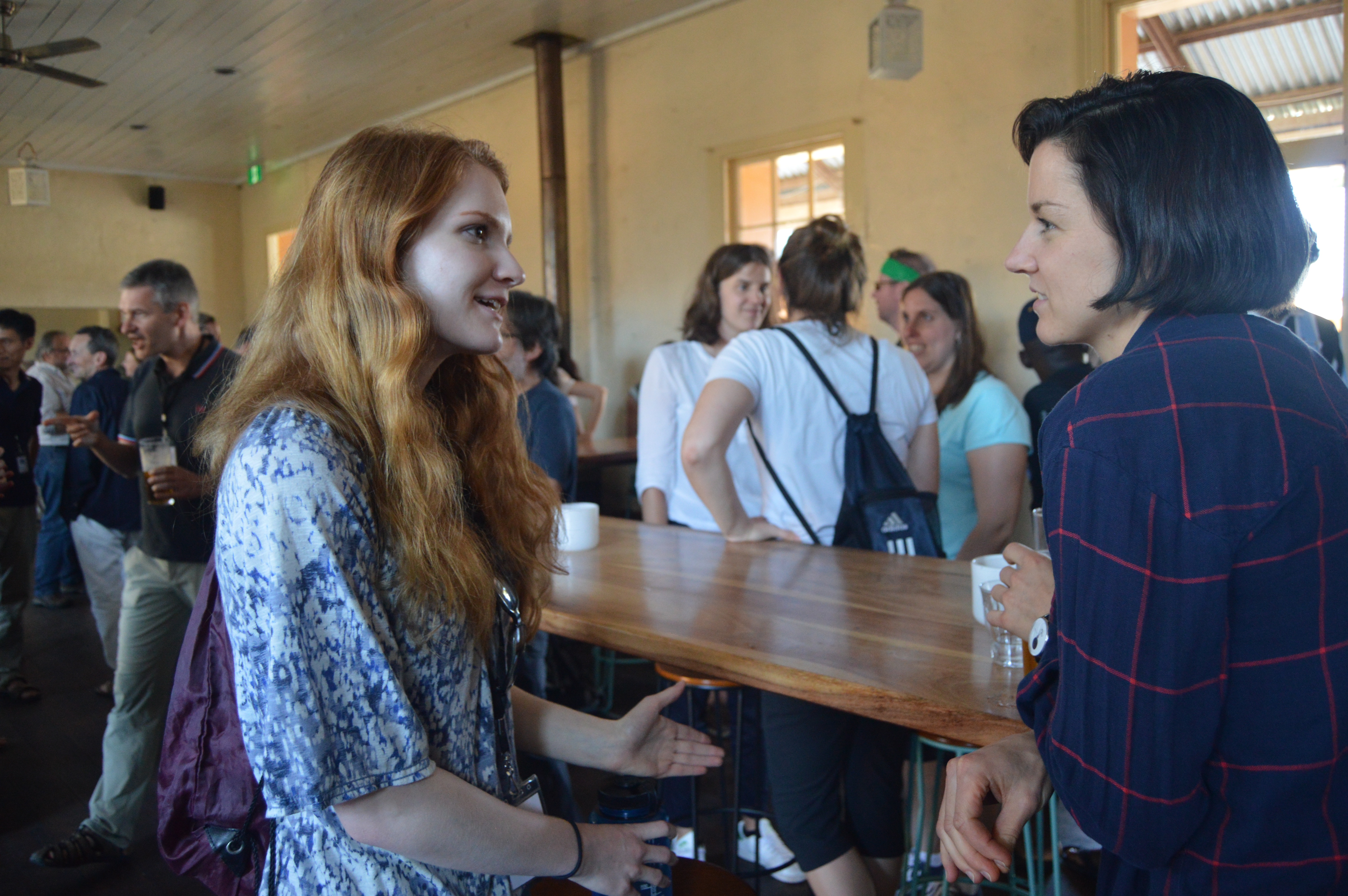Ph.D.-bound biology alumna conducted research from day one at SUNY New Paltz

Heather Wander ’18 (Biology) of Sugar Loaf, New York, got off to a good start at SUNY New Paltz, landing a job in the General Biology Lab during her first semester.
“There was never any doubt in my mind that I would go into science, but I didn’t know where it would lead me,” she said.
The time spent in the lab allowed her to practice core research skills and experiment with various branches of biological study.
“It quickly became clear that Heather was an exceptional and dedicated researcher, even as a freshman,” said David Richardson, associate professor of biology.
He and another faculty member, Lecturer Jannett Dinsmore, were preparing to lead a research team to do work at nearby Lake Minnewaska the summer following Wander’s first year at New Paltz, and they invited her to join.
“New Paltz offers a program called SURE [Summer Undergraduate Research Experience],” Wander said. “It’s usually for juniors or seniors, but they have a mentorship program where you have an upper-class student working with a freshman or a sophomore, and that’s how I got involved.”

Lake Minnewaska had recently experienced an ecological system shock: after nearly 100 years as a fishless body of water, two new species had been unintentionally introduced in 2008 and 2012.
It was a dramatic event in the ecological history of the lake, but also an ideal natural experiment for lake biologists. Their work eventually helped inform decision-making by lake managers at Minnewaska State Park, a prime example of how local research can lead directly to local benefits.
“Members of our community and region value these lakes as beautiful and pristine recreational resources,” Richardson said. “Their location so close to campus provides student researchers with a connection local ecosystems, and an opportunity to do incredible science with only a 15 minute drive.”
That summer’s work provided the foundation for a sequence of Sky Lakes studies that will soon be published in a peer-reviewed journal.
It also turned out to be the first of many times Wander would research lake biology and freshwater organisms as an undergraduate student at SUNY New Paltz.
“I’ve done research every summer since I’ve been here, and all the semesters in between,” she said. “I like being able to ask questions that haven’t been asked before, and to contribute to ongoing research in freshwater ecology. I’ve learned that conducting good science is a lot more than it seems.”

Wander’s CV has expanded over the years to include research on topics like climate change and freshwater algal blooms. While much of this work has taken place at sites near the SUNY New Paltz campus, it has also given her opportunities to travel.
In December 2018, she visited Australia for the Global Lake Ecological Observatory Network (GLEON) All Hands’ Meeting, an international gathering of researchers, educators and citizens.
The trip was made possible in part by the Robert Kyncl ’95 and Luz Avila Kyncl ’96 STEM Experiential Learning Fund, a scholarship established by New Paltz alumni that makes once-in-a-lifetime experiences attainable for science & engineering students.
“The scholarship was a huge factor in making this possible – I wouldn’t have been able to go to this conference without this funding, and I’m grateful,” Wander said.
She had been to other academic conferences before, but she describes GLEON as a special kind of community, where scholars not only share their research (Wander presented the algal blooms study), but also conduct science together in real-time.
“GLEON is unique in that you’re involved in active science – you form working groups, come up with new questions, collaborate and network with other researchers,” she said. “It’s definitely not your average conference.”

After three-plus years of conducting research as an undergraduate, Wander found her interest – she’ll be focusing on zooplankton when she advances to doctoral study in a limnology lab at Virginia Tech this fall – and a community of scholars in which she’s a natural fit.
Asked if she had advice for SUNY New Paltz students looking to follow in her footsteps, Wander stressed the importance of jumping on every opportunity to discover your passion.
“Research isn’t something you should do just for the sake of doing it – it’s important to find something that you want to learn more about,” she said. “One of the great things about New Paltz is that the professors give you opportunities to go through the whole scientific process from start to finish. I’d encourage anyone who wants to do research to really get to know your professors, learn what they do and talk to them about actively getting involved in science.”
Visit the Department of Biology at SUNY New Paltz to learn more.

